Search
Remove Ads
Advertisement
Summary 
Loading AI-generated summary based on World History Encyclopedia articles ...
Search Results
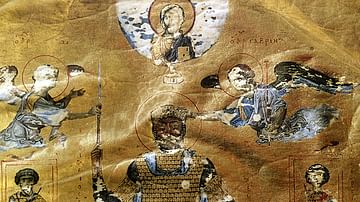
Definition
Basil II
Basil II (aka Basilius II) was the emperor of the Byzantine Empire from 976 to 1025 CE. He became known as the Bulgar-Slayer (Bulgaroktonos) for his exploits in conquering ancient Bulgaria, sweet revenge for his infamous defeat at Trajan's...
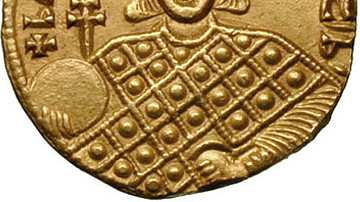
Definition
Basil I
Basil I was emperor of the Byzantine Empire from 867 to 886 CE and he founded the "Macedonian" dynasty which lasted for over 200 years. Basil was an Armenian from a humble background who had risen to become the second most powerful man in...
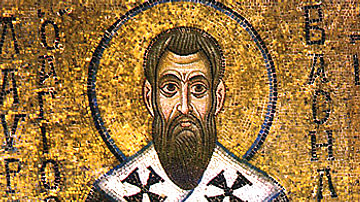
Definition
Basil the Great
Saint Basil (c. 330 - c. 379 CE), also known as Basil the Great and Basil of Caesarea, was a bishop of Caesarea in central Asia Minor who staunchly defended the church against the 4th-century CE heresy of Arianism. Basil's writings on monasticism...

Definition
Nikephoros II Phokas
Nikephoros II Phokas was Byzantine emperor from 963 to 969 CE. Known as “White Death of the Saracens,” Nikephoros was a fearsome commander who conquered Crete, Cilicia, and much of Syria. While he is known as a great military commander, he...
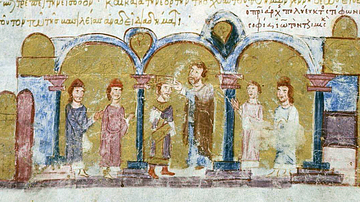
Definition
John I Tzimiskes
John I Tzimiskes was Byzantine emperor from 969 to 976 CE. Although he took the throne by murdering his predecessor Nikephoros II Phokas, John was a popular emperor. A skilled general and a competent politician, he is known for expanding...
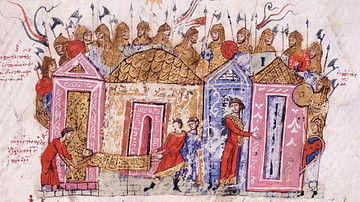
Definition
Varangian Guard
The mercenary Varangian Guard was an elite Byzantine army corps and the personal bodyguard of emperors beginning with Basil II in c. 988 CE. The Viking unit was famous for the stature of its members and their blood-thirsty conduct in battle...
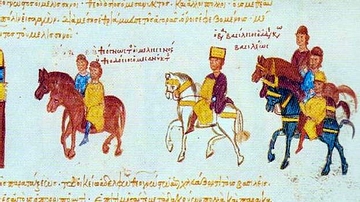
Image
Basil II in Triumph
A 12th century CE depiction of the Byzantine emperor Basil II (r. 976-1025 CE) riding in triumph through Constantinople. From the Madrid Skylitzes. (National Library of Spain, Madrid)
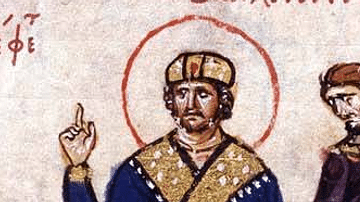
Definition
Michael III
Michael III, also known as “Michael the Drunkard” by his detractors, was emperor of the Byzantine Empire from 842 to 867 CE. Never quite escaping the shadow of his mother Theodora, who ruled as regent in his name until c. 855 CE, or his uncle...
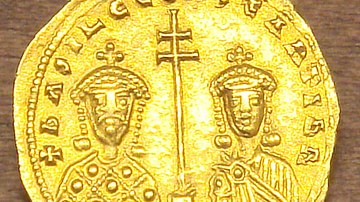
Image
Coin of Basil II
A gold coin of Basil II, emperor of the Byzantine empire (r. 976-1025 CE). Showing Basil and his brother and successor Emperor Constantine VIII. (Musee Saint-Denis, Paris)
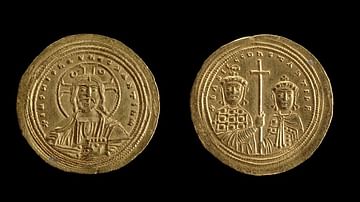
Image
Nomisma Coin of Basil II
A gold nomisma coin of Byzantine emperor Basil II (r. 976-1025 CE). The obverse shows Jesus Christ (left) while Basil is depicted on the reverse (right). (British Museum, London)